Last updated on July 6th, 2021
Israel, officially the State of Israel, is a country in Western Asia. It has an area of 20,770 square km. Jerusalem is its capital and largest city. Hebrew is the official language of Israel and New shekel (₪) (ILS) is its official currency. Its shares its land border with four countries (Syria, Lebanon, Jordan, and Egypt.) The Mediterranean sea is the western border of Israel. The citizens or permanent residents of the State of Israel are called Israelis. Israel is located on the continent of Asia.
Israel is a small but diverse country in the Middle East with many attractions for tourists, including its temperate climate; many beaches; and archaeological, historical and biblical sites of interest. With these 50 facts about Israel; let’s discover more about its: history, culture, people, economy, conflict with Palestine; the Jews and Judaism.
Facts about Israel’s economy and people
1. Israel’s $100 billion economy is larger than all its abutting neighbors combined. It has the highest standard of living in the Middle East. It also has the highest per capita home computer ownership.
2. Israel has the highest concentration of high-tech and startup companies (over 3,000) in the world outside of the United States. It has the highest rate of entrepreneurship in the world for woman and people over 55, and the third highest in general overall.
Israel on the map
3. Israel is a world leader in the invention of new technologies. Some of the technologies it has produced are: the cell phone, voice mail technology, the first antivirus software, the Pentium MMX chip technology and most of the Window NT operating system.
4. Of Israel’s total workforce, 24 percent hold college degrees and 12 percent hold advanced degrees.
5. The world’s largest wholesale diamond center is Israel and most of the cut and polished diamonds in the world come from the country. It was also the first nation to adopt the Kimberly process. This is a new international standard that certifies diamonds as “conflict free”.
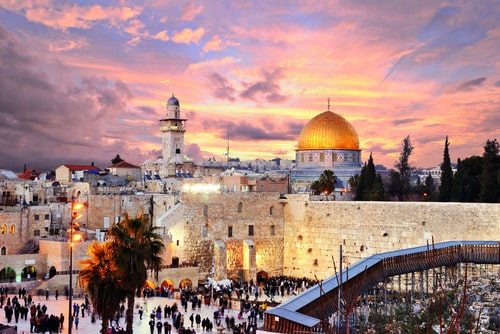
Israel’s cultural facts
6. Israel is the largest immigrant-absorbing country in the world, in proportion to its population size. With people from more than 100 countries from five continents, Israel’s culture is extremely varied.
7. The official languages of Israel are Hebrew and Arabic. The Hebrew language was dead and had not been spoken for centuries until the Israelis revived it.
8. Israel is the only country in the world that has a mandatory military service requirement for women.
9. Over 90 percent of the land is owned by the State of Israel and managed by the Israel Land Authority (ILA) which issues long-term leasing rights for it.
10. All citizens in Israel, Jews and Arabs, enjoy full political rights. Women also enjoy full rights, like they are not afforded anywhere else in the Middle East.
11. Hiking and camping are an integral part of the country’s culture. Israeli school and youth groups are taken on annual hiking trips throughout Israel, raising their children with the love for hiking and outdoor exercise.
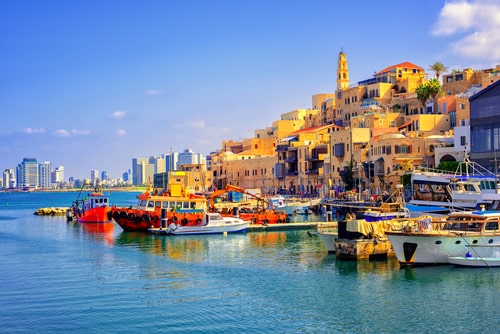
12. While everyone in Israel does not keep kosher, the observance of kashrut influences the menus in public institutions and restaurants. There are 40 kosher McDonald’s fast food restaurants in Israel. Bamba, a peanut butter flavored snack, is made exclusively in Israel and considered by many to be the national food.
13. Israel has more of each of these per capita than any other country: more books printed, more museums and more orchestras. The most free and independent Arabic press in the Middle East is in the country of Israel.
14. Israel recycles wastewater and 50 percent of its irrigated water comes from this. More than 85 percent of Israel’s solid waste is treated to be environmentally sound as well, making Israel one of the most environmentally clean nations on earth.
15. Folk dancing is highly popular in Israel, especially the traditional folk dance called the Hora. Israeli modern dance companies are highly acclaimed in the international dance world. This folk dancing is also choreographed for recreational and performance dance groups.
Amazing and funny facts about Israel
16. Israelis, per capita, are the world’s biggest consumers of fruits and vegetables.
17. Israeli banknotes have Braille markings on them so the blind can “read” them.
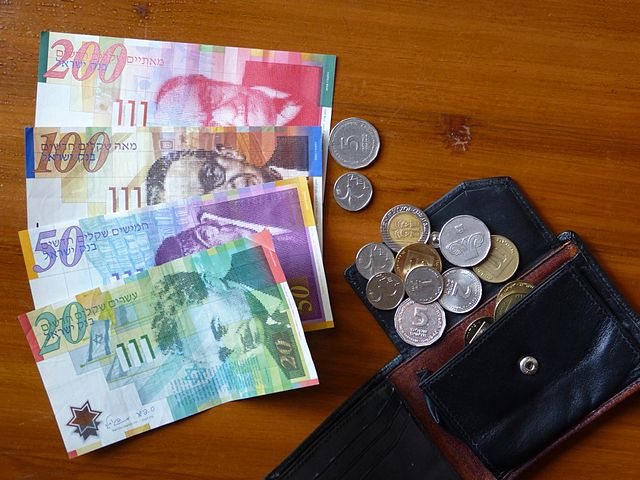
18. Israeli scientists have ruled that giraffe meat and milk are kosher.
19. Israel has become the first country to ban the use of underweight models on catwalks, in order to combat anorexia.
20. According to the most recent statistics, the most popular baby name in Israel is Noam, for girls as well as boys. Noam means “pleasant”.
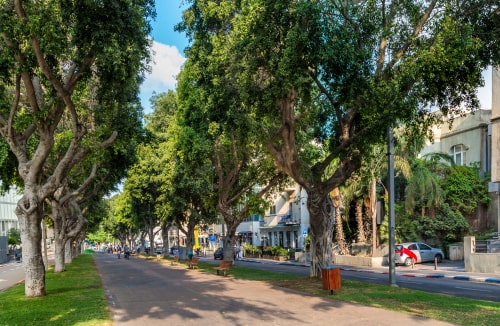
21. Israel actually began the 21st century with more trees (a net gain in their number of trees). It was one of only two countries in the world that did.
22. A company in Israel has developed the first jellyfish repellent in the world.
23. The airspace above Israel is a bird superhighway. At least 500 million birds in 200 different species fly through there each spring and fall, headed to and from Asia, Africa, and Europe.
24. In 1952, the famous scientist Albert Einstein was offered the position of President of Israel. He politely turned down the position.
25. Approximately 1,000 letters arrive in Jerusalem, Israel annually addressed to God.
Facts about Israel’s History
26. Israel is the only country in the world that has the same name, is located in the same land and speaks the same language as it did 3,000 years ago. Most of the Jews were forced by the Romans into the Diaspora (exile) after the destruction of King Solomon’s Temple in Jerusalem in 70 C.E. But the Jewish people did not all leave.
27. Communities were reestablished in Tiberius and Jerusalem in the ninth century. Five other communities grew in the 11th century. Many Jews died during the 12th century Crusades but communities rebounded and established new communities in the following three centuries. From their inception until the present the Jewish people have maintained ties to their homeland for over 3,700 years.
28. Beginning in 1870, 78 years of nation-building efforts culminated in the reestablishment of the Jewish State of Israel. In 1917 the British government supports the establishment of a permanent Jewish state in Palestine with the Balfour Declaration, which is incorporated into the League of Nations Mandate in 1922.
29. Following the United Nations partition resolution of 1947 approving a plan for the partition of Palestine, around 600,000 Arabs are displaced between 1947 and 1949. The independent state of Israel is declared on May 14, 1948. David Ben-Gurion is the prime minister.
30. Military forces from Egypt, Jordan, Lebanon, Syria and Iraq immediately invade Israel, beginning the first in a series of Arab-Israeli wars. An armistice agreement is reached in 1949 and the West Bank is divided from Israel to become part of Jordan while the Gaza Strip becomes Egypt’s. This agreement is meant to be temporary and serve as a prelude to permanent peace treaties as Israel is admitted into the United Nations that same year.
31. The Israeli government adopts the Law of Return in 1950 stating that “Every Jew had the right to come to this country…” as an immigrant. They declare Jerusalem as their capital.
32. The Six-Day War is fought in 1967 between Israel and Egypt, Syria and Jordan. Afterwards, Israel now includes double its land, along with the West Bank, the Gaza Strip, the Golan Heights and the Sinai Peninsula. In 1973 Egypt and Syria begin air strikes against Israeli on Yom Kippur, its holy day. The fighting ends in two weeks with a U. N. resolution.
33. In 1977 Egyptian President Anwar Sadat meets with Israeli Prime Minister Menachem Begin in Jerusalem for peace talks. They continue with President Jimmy Carter at Camp David in 1978 and The Framework for Peace in the Middle East is established. Sadat and Begin share the Nobel Peace Prize that year. By March 1979 the Egypt-Israel Peace Treaty is signed and Israel agrees to withdraw from the Sinai. Egypt agrees to allow Israeli ships free passage through the Suez Canal and to establish diplomatic relations with them. Egypt is kicked out of the Arab League and Sadat is assassinated.
34. In 1987 a Palestinian uprising against Israeli rule in the Gaza Strip and the West Bank known as the Intifada begins. (The Palestine Liberation Organization or PLO was formed in 1964.) The PLO accepts two U.N. resolutions: to recognize Israel as a sovereign country and to renounce terrorism. In 1991 the Madrid Peace Conference is organized by the U. S. and attended by Middle East heads of state. In 1993 PLO leader Arafat and Israeli Prime Minister Rabin shake hands on a Middle East peace agreement. In 1994 they share the Nobel Peace Prize. Rabin is assassinated in 1995.
35. In 2003 Palestinian and Israeli leaders agree to the broad outlines of President George W. Bush’s Road Map to Peace but fighting continues to the present.
The Flag of Israel
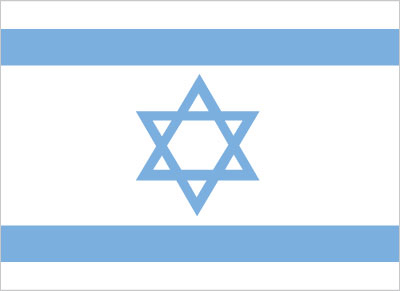
. . . continue reading on the next page.
